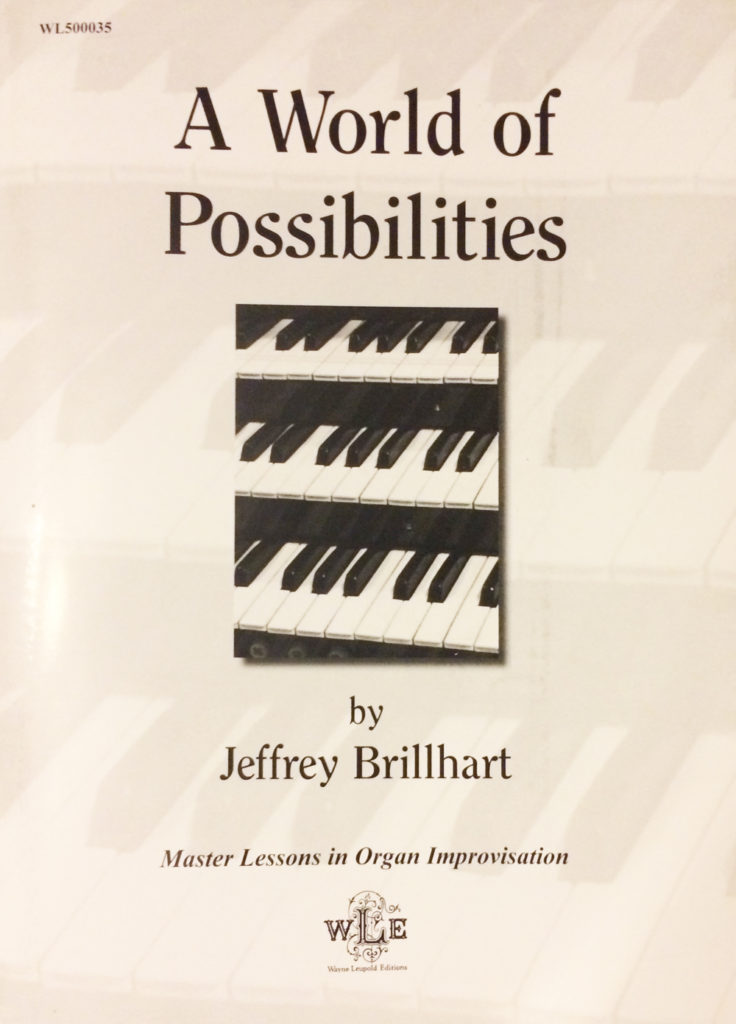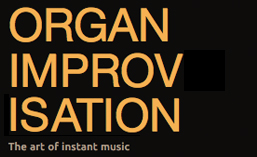Starting a new year often involves setting goals and renewed energy to work on projects that may have fallen by the wayside. My plan for 2019 is to send out at least two emails a month with resources or ideas to help you become a better improviser. to get us started, I want to take a look at a new resource that could provide us with a whole year of work, if not more!
Breaking Free
In 2011, Jeffrey Brillhart gave us Breaking Free. It is a very thorough and progressive resource for developing a personal musical language drawing inspiration from many of the 20th-century French masters. In my review of the book, I lamented the lack of specific tasks for the student. While useful for a teacher of improvisation, I wasn’t sure the uninitiated student would know what to do with all the wonderful material presented there. Just before Christmas, I received a new book by Jeffrey Brillhart that clearly addresses that concern.
A World of Possibilities

Subtitled “Master Lessons in Organ Improvisation,” A World of Possibilities contains 32 units. Each unit provides an exposition of material to cover and specific assignments for the student to improvise in order to master the material. Even in the first eight units where tonal language is the primary material, a form is given for the assignment. The result is that one is almost always improvising a complete piece that might be performed in front of an audience or used in worship!
Composition Models
In Breaking Free, form is reserved for the last few chapters
and discussed very broadly. In this new book, he gives us concrete
analysis of two major works for organ: Charles Tournemire’s L’orgue Mystique, Opus 55, no. 7 (Epiphania Domini) and Maurice Duruflé’s Prélude, adagio et chorale varié sur le theme du ‘Veni Creator,’ op.4.
The Tournemire takes two units and the Duruflé three units. Brillhart
breaks down the structure of each of the pieces and identifies elements
for students to include in their own improvisations.
Sandwiched between Tournemire and Duruflé are five units on the language
of Messiaen. Other middle units cover versets, the acoustic scale,
shifting modes, improvising on emotional states, visual images, text and
variations. After the Duruflé units are four on symphony and a final
one on silent film accompanying.
Teaching improvisation
Organists seem to be a rare breed these days. Those who improvise in
public are even rarer. Those who understand improvisation well enough to
teach it well seem to be the rarest of the rare. Jeffrey Brillhart
demonstrates with A World of Possibilities that he is indeed a
master teacher of improvisation. The book deserves its subtitle: “Master
Lessons in Organ Improvisation.” No matter what skill level the student
begins with, each assignment provides a challenge, and no matter how
hard the challenge may seem, it seems only a short distance away from
the previous assignment.
The material is dense, and you will need a copy of Breaking Free in order to take full advantage of A World of Possibilities.
A simple assignment instruction, perhaps only one sentence, might take a
week of practice to explore and master. The organization and structure
of the book however make sure that if you spend the time, you will
become a better improviser and be prepared to tackle the next
assignment.
If you are looking for a way to track your progress and improvise better
in 2019, I can think of no better way than to pick up the two books by
Jeffrey Brillhart and get to work.
Happy improvising,
Glenn Osborne
